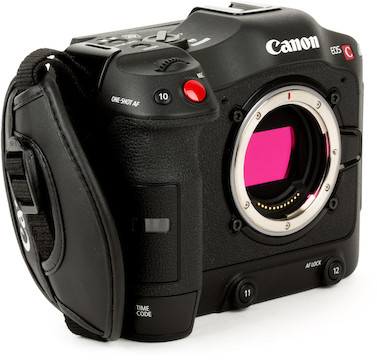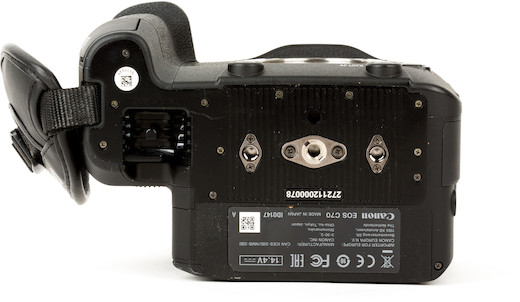Rent
Buy
Canon EOS C70 Cinema Camera (RF)
Includes
- Non-Polarized Cable
- Canon BP-A30 Battery
- Canon CG A20 Charger
- Canon Mic Mount v2
- Canon CA-CP200L AC Adapter
- Canon EOS C70
- Canon C70 Top Handle
- Canon C70 Mic Mount Hardware Kit
- Canon Standard Tape Measure Pin
Canon EOS C70 Cinema Camera (RF)
| Overall | Cosmetic | Performance | Hours Logged | Price | |
|---|---|---|---|---|---|
| Very good | 300-500 | $2,917.00 | |||
| Very good | 100-300 | $2,917.00 | |||
| Very good | 700-900 | $2,917.00 | |||
| Very good | 500-700 | $2,917.00 |
The Canon C70 is an RF-mount, cinema-quality camera with a Super 35 dual-gain output sensor. For an updated version with a 6K full-frame sensor, check out the C80. Key features include:
Super 35mm dual gain output CMOS sensor
Internal, 10-bit 4:2:2 recording to dual UHS-I SD slots
Powered by Canon BP-A batteries
RF-mount lens compatibility; DIG!C DV7 processor
Separately available accessories that may interest you:
- Canon Battery Charger for C300 Mark II and C200/B Batteries
- Canon BP-A30 Battery
- Zacuto Coldshoe Z-Finder for Canon C70
- Kondor Blue XLR Female to Mini XLR 25-foot
- Kondor Blue XLR Female to Mini XLR 5-foot
- Wooden D-Tap to Canon C70 Power Cable 20-inch
- Wooden A-Box XLR Adapter for Canon C70
- Wooden Unified Base Accessory Kit for Canon C70
Specifications
| Brand | Canon |
| Camcorder Type | Cinema |
| Camera Type | Camcorder |
| Imaging | Sensor
|
| Inputs/Outputs | Audio Inputs
|
| Item Type | Camera and Cinema Cameras |
| Mfr. Model Number | 4507C002 |
| Mount | Canon RF |


























